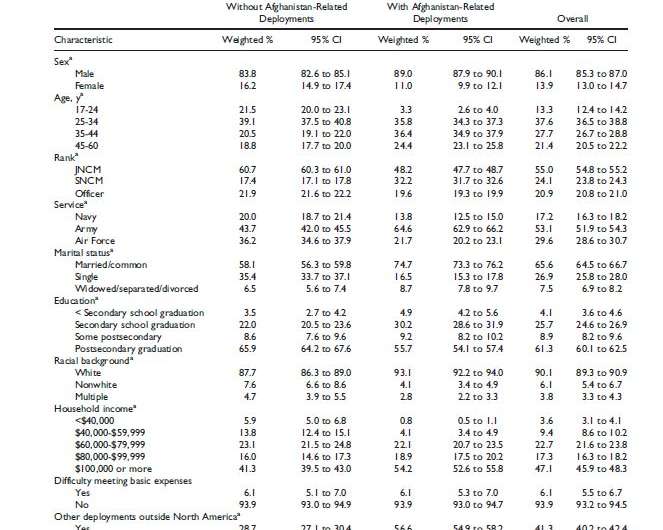Child abuse contributes the most to mental health problems in the Canadian Armed Forces

Among the mental health disorders reported in the Canadian Armed Forces (CAF) in 2013, 8.7% of the burden of illness was attributed to Afghanistan-related military service while 28.7% was attributed to past child abuse experiences. This research is out today in The Canadian Journal of Psychiatry, published by the Canadian Psychiatric Association (CPA) in partnership with SAGE Publishing.
Examining the 2013 Canadian Forces Mental Health Survey (CFMHS), which includes data from 6,696 fulltime personnel, researchers David Boulos and Mark A Zamorski found:
- 18.4% of respondents who were deployed to Afghanistan reported that in 2012, they had significant symptoms of one or more of the following six common mental disorders: generalized anxiety disorder, panic disorder, thoughts about suicide, post-traumatic stress disorder, alcohol abuse or dependence, or had experienced a major depressive episode.
- Respondents that were deployed to Afghanistan were 2.4% more likely to have experienced child abuse than those that were not deployed to Afghanistan.
- The Afghanistan-related deployments accounted for 34.7% of the burden of panic disorder, 32.1% of post-traumatic stress disorder, and 9.3% of major depression.
- Child abuse accounted for 48.4% of the cases of alcohol dependency, 37.1 % of post-traumatic stress disorders, and 33.8% of the cases of suicidal ideation.
- Together, Afghanistan-related deployments and child abuse experiences accounted for 38% of any mental disorder, 58.5% of post-traumatic stress disorders, 51.4% of panic disorders, and 37% of major depressive episodes.
"Our findings indicate that a significant proportion of past-year mental disorders in the CAF, particularly post-traumatic stress disorder and panic disorder, were attributed to Afghanistan-related deployments," wrote Boulos and Zamorski. "However, the contribution from child abuse experiences was much larger. These findings speak to the need for robust mental health systems that target the full range of determinants of mental health in military personnel, both in times of war and in times of peace."
More information: "Contribution of the Mission in Afghanistan to the Burden of Past-year Mental Disorders in Canadian Armed Forces Personnel, 2013" Canadian Journal of Psychiatry, 2016.













